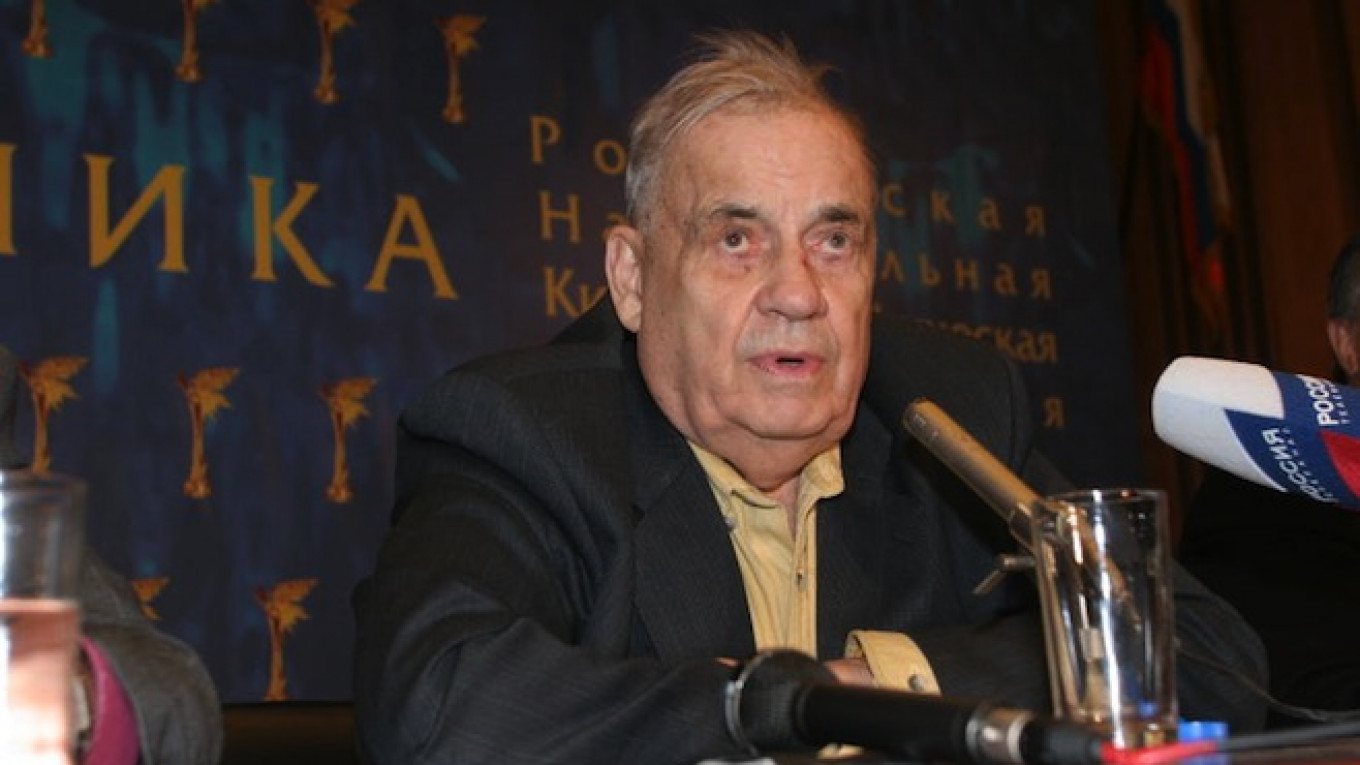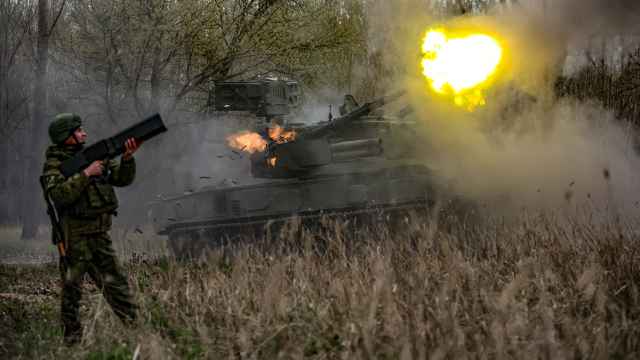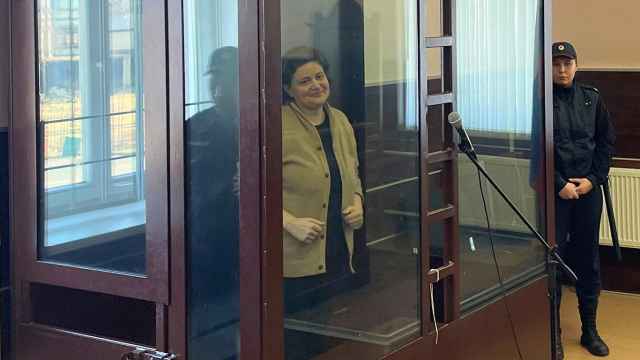One of Russia's most famed and beloved film directors, Eldar Ryazanov, has died in a Moscow hospital from heart failure, the TASS news agency reported Monday. He was 88.
Ryazanov's subtly ironic comedies and piercing dramas marked an era in Soviet cinematography and achieved tremendous popularity with their lighthearted, yet cerebral, sense of humor, gripping reflection of human quirks, and exposure of the oddities of the Soviet regime.
The film director achieved fame in 1956 with his musical “The Carnival Night.” He went on to make an array of films that have been celebrated as cult classics by generations of Russians.
His best-known films include the 1975 New Year's comedy “The Irony of Fate” — which for decades was traditionally broadcast by main television networks on New Year's Eve — the crime comedies “The Incredible Adventures of Italians in Russia” and “Beware of the Car,” the ironic “Garage” that poked fun at Soviet singularities, the romantic screwball comedy “Office Romance,” the love story “Station for Two,” and the drama “A Cruel Romance.”
Ryazanov also co-authored the scripts of many of his films, and was known for making brief cameo appearances in his productions.
At a time when the majority of Russians cheered the annexation of Crimea from Ukraine last year, Ryazanov joined a handful of other celebrated cultural figures in Russia to publicly denounce Russia's meddling in the neighboring country.
In March 2014, Ryazanov co-signed a letter, addressed to Ukrainian actors and filmmakers, that criticized the “unprecedented anti-Ukrainian campaign unleashed by Russia's state television channels.” It condemned the Kremlin-backed government of Ukraine's former President Viktor Yanukovych —who was toppled by popular protests in Ukraine — as a “shameful regime.”
“We, as you, are categorically against the lies in the coverage of events that are fateful for Ukraine, and even more so against the Russian military intervention in Ukraine,” read the letter, published on Russia's KinoSoyuz filmmakers' association website.
Other signatories of the letter included celebrated character actress Liya Akhedhzakova, who appeared in many of Ryazanov's films.
Ryazanov received the Soviet Union's main artistic award, the People's Artist of the U.S.S.R., and Russia's top honor, the Order for Service to the Fatherland — which he won twice, in 1996 and in 2008 — and France's Commander of the Order of Arts and Letters.
Ryazanov's films have garnered the “Best Film of the Year” award five times. The viewer popularity contest, run by “Sovetsky Ekran” (“Soviet Screen”) magazine, is based on surveys of its readers, according to online reports. No film director in the country has won the award more often.
Ryazanov was hospitalized on Nov. 21 with apparent heart and lung failure, Russian media reported. He was pronounced dead in the early hours of Monday, the LifeNews tabloid television channel reported.
“Unfortunately, we can officially confirm this information,” an unidentified member of the film director's family was cited by TASS as saying. Ryazanov “died of acute heart failure,” the family member said, TASS reported Monday.
Ryazanov had undergone a series of hospitalizations and treatments since last fall.
He spent two months in Moscow's Burdenko neurosurgery hospital, after being rushed there with a suspected stroke in late November 2014.
Ryazanov underwent a “prophylactic” blood-vessel treatment in August, but was hospitalized again in September, and then again in October, Lenta.ru news portal reported Monday.
Contact the author at newsreporter@imedia.ru
A Message from The Moscow Times:
Dear readers,
We are facing unprecedented challenges. Russia's Prosecutor General's Office has designated The Moscow Times as an "undesirable" organization, criminalizing our work and putting our staff at risk of prosecution. This follows our earlier unjust labeling as a "foreign agent."
These actions are direct attempts to silence independent journalism in Russia. The authorities claim our work "discredits the decisions of the Russian leadership." We see things differently: we strive to provide accurate, unbiased reporting on Russia.
We, the journalists of The Moscow Times, refuse to be silenced. But to continue our work, we need your help.
Your support, no matter how small, makes a world of difference. If you can, please support us monthly starting from just $2. It's quick to set up, and every contribution makes a significant impact.
By supporting The Moscow Times, you're defending open, independent journalism in the face of repression. Thank you for standing with us.
Remind me later.






